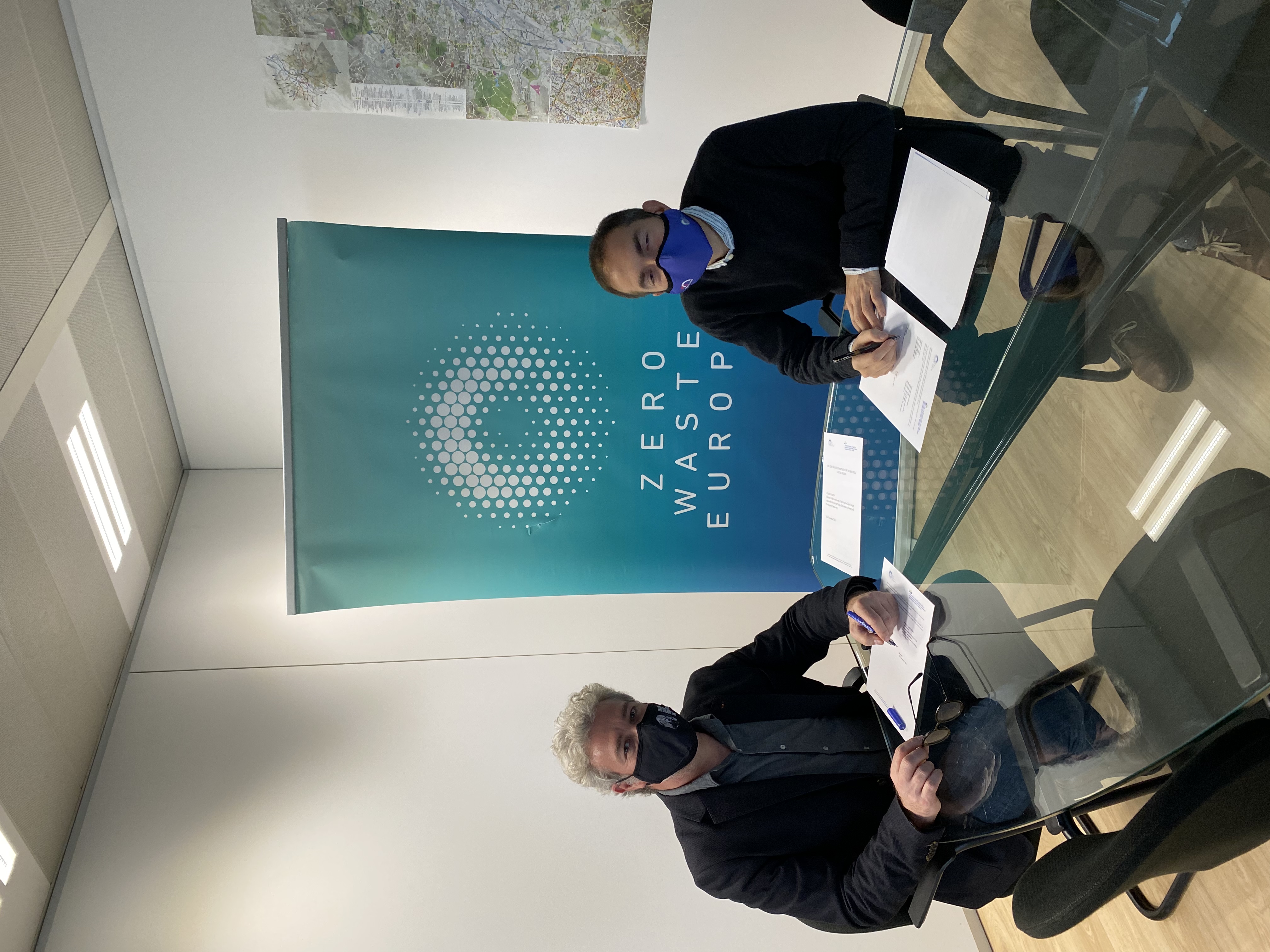Thessaloniki gets ready for its metro launch in November
The underground rapid transit lines have been under construction for almost two decades due to various project delays
 TheMayor.EU logo
TheMayor.EU logo The move makes the Belgian capital the largest city in the European Union to join the European Zero Waste Charter
Yesterday, local authorities in Brussels signed the European Zero Waste Charter, becoming the first Belgian city and the largest city in the European Union to commit to the project. The decision came after year-long negotiations with representatives of Zero Waste Europe and Zero Waste Belgium, as the capital joined a network of 445 cities and municipalities across the continent in their fight against climate change.
According to Brussels authorities, the new strategy calls for a 20% per capita reduction in waste by 2030. Some of the measures include the separate collection of bio-waste materials, mandatory for all households and enterprises by the end of 2022.
Another measure is the diversification of the plastics collection process, meaning that more types of plastic will be collected and recycled. Other initiatives focus on minimising food waste for both private consumers and businesses, as well as an initiative to reduce useless extra packaging.
The Belgian capital has been timidly pushing waste reduction training and policy for years and the hope of this move is to accelerate the process. According to researchers, if citizens implement all the recommended measures, they can reduce the waste they generate, which ends up in incineration plants by a factor of four.
This is why authorities plan to invest in the transition on the level of small and medium businesses through circular projects that should help them move away from reckless waste generation.
The only other European capital that has committed to Zero waste currently is Ljubljana in Slovenia. At the same time, Brussels is the first capital in Northern Europe to adopt the measures and that has the potential to start a domino effect with other local leaders in the EU.

L-R: Alain Maron, the Brussels-capital region Minister for Climate Change, Environment,
Energy and Participatory Democracy and
Joan-Marc Simon, Executive Director at Zero Waste Europe, signing the agreement.
Source: Zero Waste Europe
As the effects of climate change are getting more severe from year to year, the stakes for course correction are getting higher. Zero waste cities have the potential to make a significant dent in global carbon emissions.
Simply put, every time an object is reused instead of incinerated or otherwise destroyed, resources are saved. This lowers energy consumption and prevents new greenhouse gases from entering the atmosphere, with emissions from manufacturing and extraction. According to Zero Waste Europe, this makes reducing waste a matter of health and climate.
Alain Maron, the Brussels-capital Region Minister for Climate Change, Environment, Energy and Participatory Democracy was quoted in a press release, saying: “Climate ambitions are being raised at European level and having just returned from COP26, I am even more convinced of the importance of drastically reducing the impact of our consumption. We are working on changing behaviour at source, with our citizens, with our administrations, but also with our companies.”

The underground rapid transit lines have been under construction for almost two decades due to various project delays

Now you can get your wine in Talence by paying directly in Bitcoin

That’s because the state has to spend money on updating the railway infrastructure rather than subsidizing the cost of the popular pass

Rethinking renewable energy sources for the urban landscape

The examples, compiled by Beyond Fossil Fuels, can inform and inspire communities and entrepreneurs that still feel trepidation at the prospect of energy transition

Now you can get your wine in Talence by paying directly in Bitcoin

The 10th European Conference on Sustainable Cities and Towns (ESCT) sets the stage for stronger cooperation between the EU, national and local level to fast track Europe's transition to climate neutrality.

At least, that’s the promise made by the mayor of Paris, Anne Hidalgo

The underground rapid transit lines have been under construction for almost two decades due to various project delays

At least, that’s the promise made by the mayor of Paris, Anne Hidalgo

Hostal de Pinós is located in the geographical centre of the autonomous region

Despite its church-y name, the district has long been known as the hangout spot for the artsy crowds

Urban dwellers across the EU are having a say in making their surroundings friendlier to people and the environment.

Forests in the EU can help green the European construction industry and bolster a continent-wide push for architectural improvements.

Apply by 10 November and do your part for the transformation of European public spaces

An interview with the Mayor of a Polish city that seeks to reinvent itself

An interview with the newly elected ICLEI President and Mayor of Malmö

A conversation with the Mayor of Lisbon about the spirit and dimensions of innovation present in the Portuguese capital














